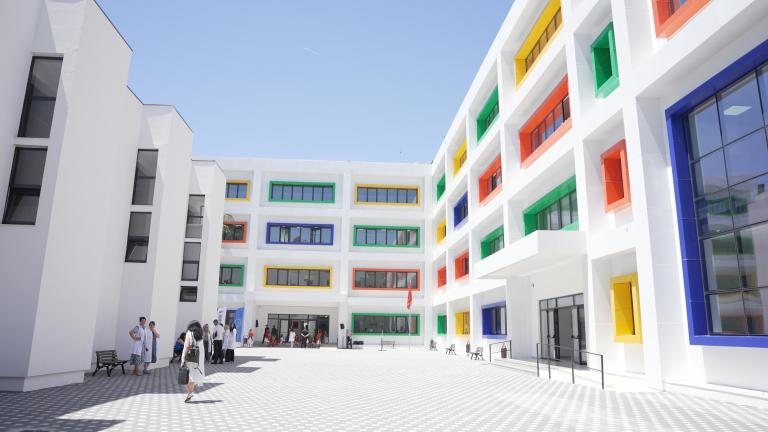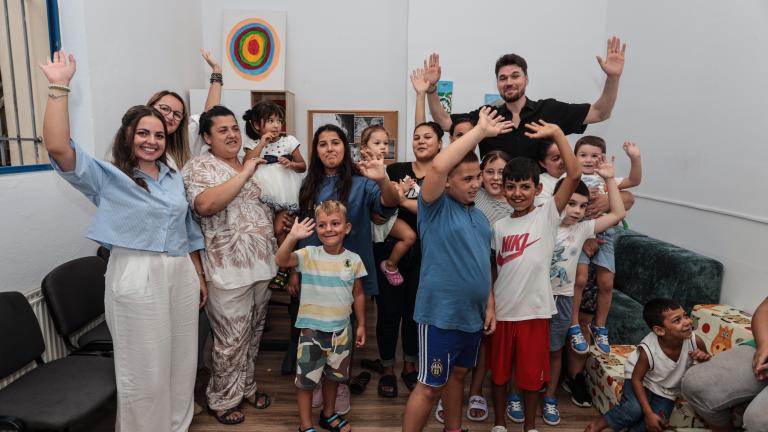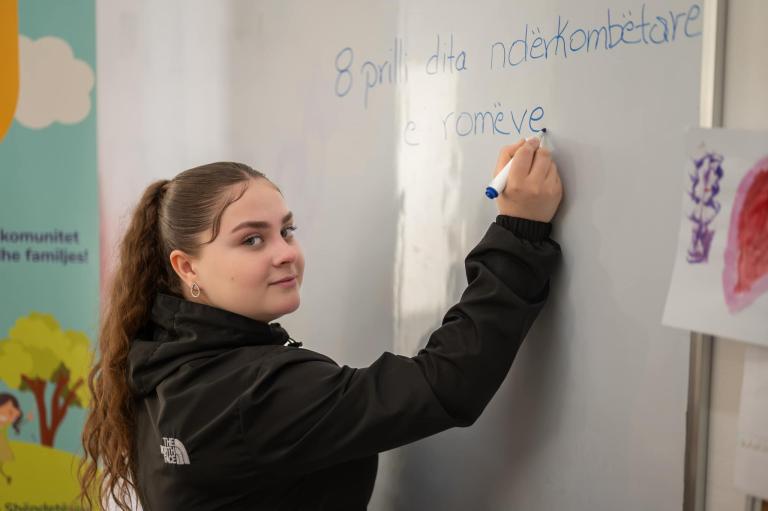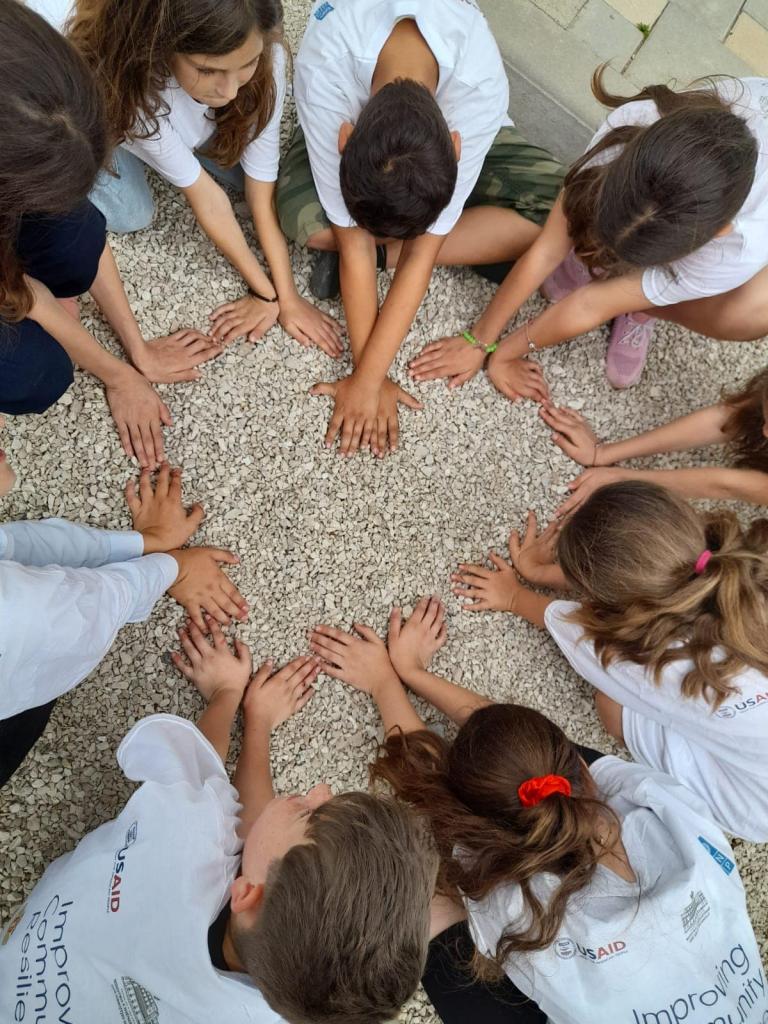#EU4Schools Programme: Building Schools, Building Dreams!
In Tirana amid a blend of old and new, stands “Emin Duraku” school—a solid symbol of education in a neighbourhood where tradition meets modernity. “Before the new school was built, we had to study in temporary classrooms”, says 14-year-old Bjorna shyly with a smile.

Learn more
Social Protection
Albania has made significant strides in social protection and inclusion through targeted reforms aimed at improving livelihoods, enhancing service delivery, and fostering labor market participation for vulnerable groups. Key strategies, including the National Social Protection Strategy (NSSP) 2024–2030, the National Employment and Skills Strategy (NESS) 2030, and the Youth Guarantee, address social exclusion, poverty, informal employment, skills mismatches, and gender disparities.

Albania’s participation in the Global Accelerator on Jobs and Social Protection for Just Transitions underscores its commitment to advancing labor policies, social welfare, and inclusive measures for vulnerable populations. Despite this progress, challenges remain, including persistent poverty, limited access to services in rural areas, and gaps in preventive measures and alternative care systems. Addressing these issues requires further investment in capacity building, fiscal space, service adequacy, and inclusive policies.
Education
Albania has demonstrated a strong commitment to transforming its education system by promoting inclusion, equity and quality through reforms, infrastructure upgrades and digital modernization. While enrolment and literacy rates have improved, significant challenges persist for vulnerable groups such as children with disabilities, Roma and Egyptian minorities and rural girls, who face barriers to access and retention.
Public education spending remains below the EU average, exacerbating disparities in quality and outcomes and contributing to high rates of youth disengagement. In 2024, the UN provided strategic support to strengthen Albania’s education system through comprehensive interventions aimed at fostering equity and quality.

A cornerstone achievement was the reform of Early Childhood Education (ECE), which expanded access for children of age 0–6 years, particularly benefiting marginalized groups, and established a robust foundation for lifelong learning. The development of an EU-aligned roadmap for ECE was complemented by professional development initiatives that trained 418 assistive and classroom teachers in evidence-based inclusive practices. Additionally, 556 staff members received specialized training in blended learning methodologies and Information and Communications Technology (ICT) competencies, enhancing classroom engagement and reducing drop-out rates through programmes such as Social Emotional Learning and Early Warning Systems, and reaching 17,261 students.
Health Care and Shock Responsive Systems
Albania has achieved significant improvements in health indicators, including life expectancy (for which it surpasses regional averages), under-5 mortality and cardiovascular disease-related death rates in adults 30-70 years old. However, challenges persist in achieving universal health coverage (UHC), addressing non-communicable diseases (NCDs) and mental health, and ensuring equitable access to reproductive health services.

Socio-economic disparities, out-of-pocket healthcare costs and gaps in preventive care exacerbate vulnerabilities, particularly among marginalized groups such as Roma and Egyptians and low-income households. These disparities underscore the need for structural reforms to improve access, coverage and quality of healthcare services.
Inclusive Community Engagement
Albania continues to face significant challenges in fostering inclusive community engagement, particularly for marginalized groups such as Roma, Egyptians, women and youth in rural and disadvantaged areas. Structural barriers in local governance, socio-economic disparities and limited access to social services hinder effective participation in decision-making processes.

Demographic shifts, including rural-to-urban migration and an aging population, exacerbate these challenges, while high levels of informality in employment and service delivery perpetuate gaps in access to social protection, education, healthcare and economic opportunities. The occurrence of natural disasters such as the 2019 earthquake highlights the urgent need for strengthened local capacities and participatory governance mechanisms to ensure resilience and inclusion.

